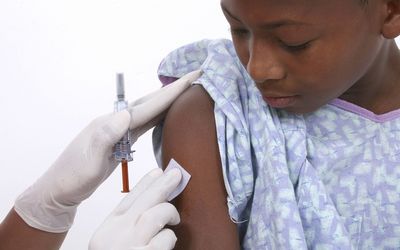What to know about the verdict and sentencing phase of Bolsonaro's trial in Brazil
Travel doctors warn visitors to Angola and Uganda of yellow fever outbreak

Travelers to Angola and Uganda were on Tuesday urged to consult travel health clinics and take extra precautions due to an outbreak of yellow fever.
In Angola‚ a yellow fever outbreak has claimed at least 238 lives since December 2015. And a recent newsflash issued by the South African Society of Travel Medicine (SASTM) said that the Ugandan health ministry had now also confirmed a yellow fever outbreak in Masaka and Kebisoni in the Rukungiri district.
In addition a number of “imported” cases‚ occurring in travellers who recently returned from Angola‚ have been reported. Nine cases were identified in China‚ three in the Democratic Republic of Congo‚ two in Kenya and one in Mauritania.
“It is standard protocol to have the compulsory yellow fever vaccination at least 10 days prior to travelling to any area where the virus is endemic‚ to ensure that it is effective‚ and Angola has recently been categorised as a higher risk country for yellow fever‚” said Dr Pete Vincent of Netcare Travel Clinics and Medicross Tokai family medical and dental centre.
Yellow fever is a viral disease that is transmitted by a day-biting mosquito‚ and circulates between infected monkeys or humans and mosquitoes. There is no cure for the disease but there is an effective vaccine to prevent it.
The illness develops within six days of a person being bitten by an infected mosquito‚ and the onset is usually sudden. Fever develops with headache‚ body and back pains and‚ most often‚ nausea and vomiting.
In most cases‚ infection is not life-threatening. About one in 15 people‚ however‚ fall ill with a second “toxic” phase of the disease‚ which can be fatal. This second phase has many of the same symptoms of the first phase‚ but patients also develop a yellow complexion‚ or “yellow jaundice”‚ as a result of liver damage and bleeding. Severe damage to the major organs such as the liver‚ kidneys and heart is caused by the disease. The mortality rate is high in those who develop a severe form of the disease.
“International health regulations regarding yellow fever are clear‚ and travellers who have not been vaccinated may be refused entry into a country or even face quarantine under certain circumstances. Travellers who have been vaccinated against yellow fever are issued with an internationally recognised vaccination certificate for inspection by immigration officials. This strict control is maintained to ensure that both individual travellers and wider communities in their home countries are protected against outbreaks and the spread of this disease‚” Dr Vincent said.
“Foreigners without the vaccination certificate‚ who try to gain entry to SA from an area where yellow fever is prevalent‚ will not be allowed into the country and may be sent home. South Africans trying to re-enter the country after visiting yellow fever areas without a valid vaccination certificate also face the prospect of quarantine‚” said Dr Vincent.
The World Health Organisation (WHO) has warned that babies younger than nine months‚ pregnant women and nursing mothers should avoid travelling to yellow fever areas. Where travel is necessary‚ vaccination should be discussed with a travel doctor.
“People with compromised immune systems‚ such as those who are HIV positive or are living with cancer‚ and the elderly are also advised to discuss their options with a travel doctor‚” Dr Vincent said.
“People who have severe allergies to chicken and egg protein‚ gelatine‚ or any other substances contained in the vaccination‚ are cautioned against having the yellow fever vaccine‚ and are accordingly urged not to travel to yellow fever areas.”












Leave a Reply
Be the First to Comment!
You must be logged in to post a comment.
You must be logged in to post a comment.